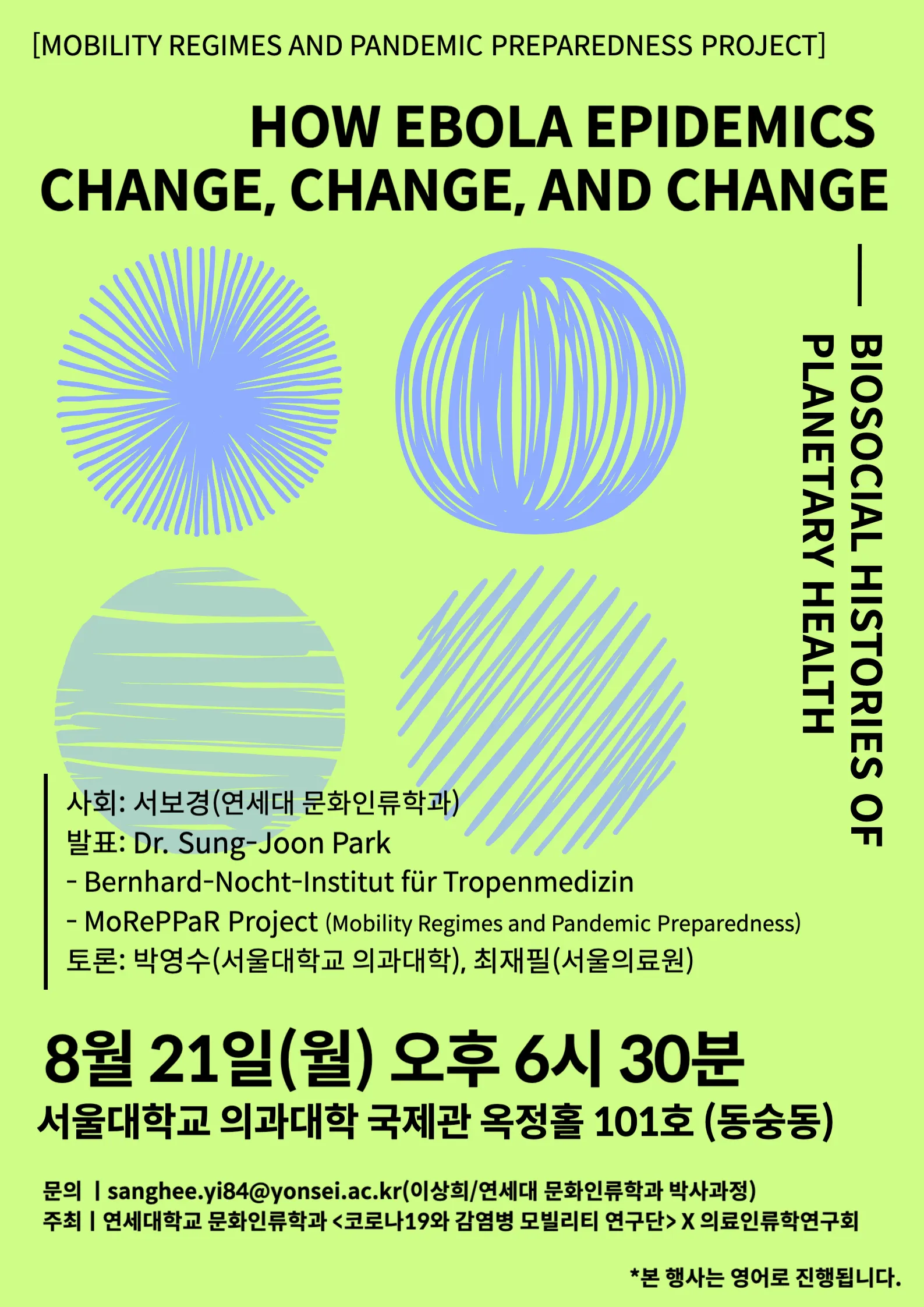[MoRePPaR Project Seminar in Seoul, South Korea]
<How Ebola Epidemics Change, Change, and Change: Biosocial histories of planetary health>
Date and Time: Aug. 21st(Mon) 2023 18:30 ~ 20:00(KST)
Venue: Global Center(Building #19) 101(Okjeong-hall), SNU Medicine(71, Ihwajang-gil, Jongno-gu, Seoul)
Chaired by Dr. Bo Kyeong Seo, Yonsei University
Speaker: Dr. Sung-Joon Park
•
Bernhard-Nocht-Institut für Tropenmedizin
•
MoRePPaR Project(Mobility Regimes and Pandemic Preparedness and Response Project)
Discussants:
Dr. Yeong Su Park, Seoul National University College of Medicine
Dr. Jae-Pil Choi, Seoul Medical Center
Organized by: Research Team <COVID-19 and Pandemic Mobility> in the Department of Cultural Anthropology at Yonsei University X Medical Anthropology Study Group
<Abstract>
Ebola outbreaks are considered to be unpredictable, yet unavoidable threats to global health. Often this unpredictability refers to the ways an Ebola outbreak is caused by a spillover of viruses from animal reservoirs to humans. This understanding has been mobilizing ideas of preparedness and security in the field of global health. Each Ebola epidemic—next to a range of other recent epidemics most notably the Covid-19 pandemic—has been framed as a lesson-learned for improving preparedness, as much as each epidemic made the dramatic shortcomings of global health visible, which anthropologists and more generally social scientists have been variously criticizing. In my presentation, I suggest exploring the transformations of Ebola epidemics to inquire into the anthropogenic transformations of the environment. In specific, drawing on past and ongoing research, I will discuss the Ebola epidemic in West Africa (2013-16) and Eastern DRC (2018-2020), each giving rise to new outbreaks in the same region. To explore how epidemics change, we need to ask how viruses behave in altered environments. How are these changes proffering a new understanding of preparedness? And most importantly, what do these changes tell us about the ways environmental damages are embodied in times of the Anthropocene. These questions invite us to bring biological and historical inquiries into the ‘nature’ of humans and nature into conversation, as I will suggest in my presentation. This allows to provide an acute historicization of epidemics, which helps us to move beyond the usual lessons to be learned from past epidemics. In contrast to histories revealing the truth of epidemics, a historicization of Ebola epidemics proffers anthropological perspective on the present of infectious diseases, which may be the past of planetary futures.
